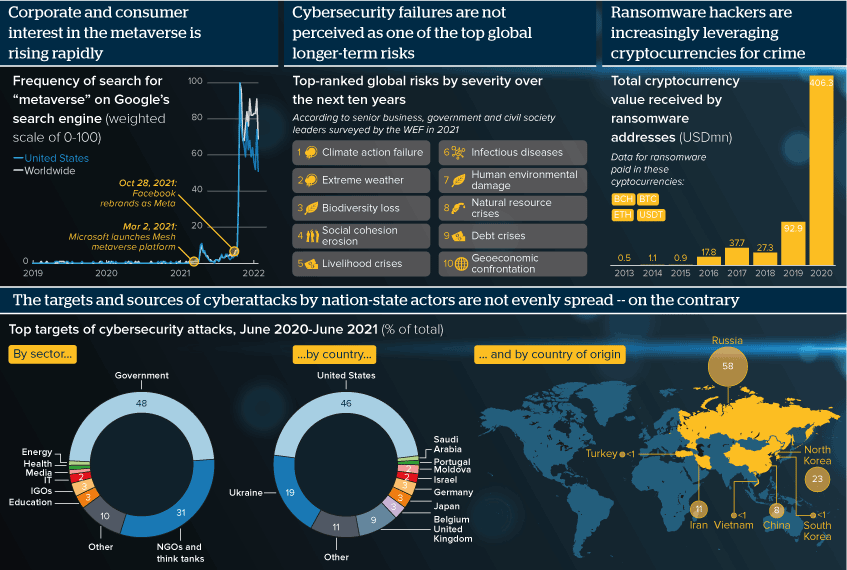Metaverse adoption will multiply cybersecurity risks
Cybersecurity risks are rising just as the next generation of internet technology is unfolding
Source: Google Analytics; World Economic Forum (WEF), Global Risks Perception Survey, 2021-22; Chainanalysis, Ransomware 2021: Critical Mid-Year Update, Insights blog; and Microsoft Digital Defense Report, October 2021
Outlook
The ‘metaverse’ is an immersive, 3D version of the internet where users will interact with computer-generated environments and each other using virtual and augmented reality hardware. As consumer interest in the metaverse rises, cyberattacks will also evolve, with data and identity theft, ransomware and disinformation campaigns potentially becoming more targeted and destructive.
The borderless nature of the metaverse will make international collaboration on cybersecurity essential. However, this will be difficult if corporate and government leaders fail to prioritise online safety and security as a global risk (and not just a national or regional risk), and if US-Russia and US-China rivalries continue to intensify.
Impacts
- Public services offered in the metaverse could become prime targets for cyberattacks.
- The growing use of cryptocurrencies for criminal activity will result in tighter transparency and governance rules for cryptos exchanges.
- Washington will intensify pressure on the US corporate sector to step up cyber defences, partly by adopting zero-trust network security.
See also
- Metaverse holds unknowable societal risks - Jan 31, 2022
- Regulators are alert to impact of metaverse - Jan 19, 2022
- 'Metaverse' concept gains traction in China - Dec 16, 2021
- More graphic analysis
